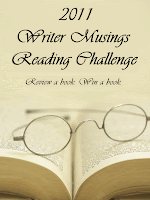Voice. I’ve heard many people describe and define this, and it always seems to be different each time. Some people said it was how clearly the characters came through. Some said it was how clearly the story itself came through. Others said it was how the author used her own voice to carry everything to the end.
I say this: it’s all of these things. Which makes Voice one of the biggest aspect of writing, and also one of the hardest to understand.
Voice applies to many different aspects of a story. It’s in the characters, the plot, the setting, the time frame, and the author. And Voice comes out through each chosen word, each image created, and each sense invoked. And it’s all different, depending on which part you’re looking at.
Voice of the main character.
Whether the story is told from first or third person, the strongest Voice makes every word sound like it comes from the main character. This is his story, after all, and he should be able to tell it however he wants. After all, everyone is different with different storytelling skills. How does your main character do it? How can he tell his story such that the reader gets lost in it, even forgets himself at times?
Sometimes this Voice sounds like the character is talking to himself. Sometimes it sounds like the character is talking to the reader. However he comes across, the strongest Voice is when the reader feels like the character is speaking directly to him. So, words like heard, saw, noticed, realized, remembered, etc are not words that evoke strong Voice. They don’t evoke anything, actually. They don’t create a consistent visual, trigger a strong emotion, or make the reader feel like he’s a part of the story. Choosing words that show what a character sees and feels will generate a stronger Voice than telling us what the character sees and feels. I’m crossing over into show vs. tell a bit here, but so much of writing is connected that it’s impossible to separate aspects completely.
Voice of the story.
What kind of story is this? Is it humorous? Suspenseful? Introspective? Notice I am not listing genres, but rather I’m listing the different ways your story comes alive. A fantasy can still be humorous. A mystery can still be introspective. It’s all in how your characters choose to carry out the story.
So, for humor, choose words and incidents that will bring a smile to the reader’s face – and I’m not just talking about dialogue. Perhaps your character has a scathing wit, or perhaps he has the worst, most ridiculous luck in the world. For introspective, don’t bore your reader with paragraphs of rambling thoughts. Instead, inject that introspection in key places where it adds the most to the story.
But the most important thing here is that your story’s Voice must begin on page one, then carry through to the end.
Voice of the setting or time frame.
Where does this story take place? New Yorkers use different words and dialect than southerners. Rural Midwest has a completely different culture than California. London speech doesn’t sound remotely like Australian. Present day actions and reactions are not the same as actions and reactions a hundred years ago. When you choose your setting and time frame, choose your words and actions such that it’s obvious when and where your characters are.
For example, red lipstick and sweater sets were popular in the fifties. Train travel was the fastest way to get around in the early 1900’s. The expectations of men women were different twenty years ago. Each of these things matter, and it also matters to use the words and actions popular during your time frame. Otherwise the reader won’t be able to immerse himself.
Voice of the author.
This is you, but it’s not necessarily you talking to the reader. I think this is the most nebulous of all aspects of Voice, because this is the underlying piece of you that goes into all your work, that comes from all your experiences in life. Unless the reader knows you really well, it’s unlikely that anyone will be able to pinpoint exactly when and where your Voice is coming through, but the authenticity of everything you say will make the overall Voice ring true.
This crosses into writing what you know – that is, writing what you’ve experienced in life, not what you can learn through research or imagination. These are the pieces that make you who you are, and they must go on the page. To some, this is one of the scariest aspects of writing, because it’s the part we lay bare to a whole world of strangers. Kind of like running around naked. But, without it, the whole story could fall flat.
These aspects of Voice are essential to every good story. The more compelling the Voice, the more compelling the story. I’ve heard more than one agent or editor stress how important Voice is, so it’s definitely important to bring it out.
But how do we learn to harness that Voice? Well, I can’t tell you how to find yours because each Voice is different. I can only tell you where I found mine. And it was hunkered down inside me, hiding in all the things I thought about but never shared.
So, if you’re still looking for your Voice, or you’re looking for ways to strengthen it, then start looking deep within yourself. I’m betting it’ll be staring right back at you.






